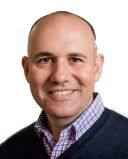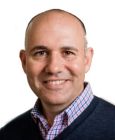
Grit
Angela Duckworth Speaks on Grit and Her Early Career
Angela Duckworth shares secrets about her career journey.
Posted June 2, 2019

You probably know Angela Duckworth as the author of the book, Grit: The Power of Passion and Perseverance, which was a number-one New York Times bestseller. But what you might not know about Angela is that in her late 20s, she left a demanding job as a management consultant to teach math to seventh graders in New York City Public Schools. Several years in the classroom taught her that effort was tremendously important to success. And to begin to solve the mystery of why some people work so much harder and longer than others, Angela entered the Ph.D. Program in Psychology at the University of Pennsylvania, where she is now a professor. I caught up with Angela on our From the Dorm Room to the Board Room podcast to discuss her career journey. The following excerpt from this interview has been edited and condensed for clarity.
Andy Molinsky: Tell us about your college experience. What did you major in?
Angela Duckworth: I went to Harvard a long time ago, and I was a neurobiology major, in part because I was failing neurobiology, the course. My professor recommended I drop the course, but instead of doing that, I very obstinately, maybe greedily, decided to major in it to prove him wrong. I was a very determined student. I think I got a lot out of my college experience. But I definitely wasn’t always happy and relaxed. So, I have a lot of empathy for young people who are navigating those troubled waters.
Molinsky: What misconceptions do you think young people have when leaving college and entering the workplace?
Duckworth: I think one misconception is that if you don't have a calling in your first job, you shouldn't really throw yourself into it with passion. But I’d say if you’ve made the commitment to a job, even if it's not forever, just throw yourself into it. Be amazing. Learn as much as you can, contribute as much as you can. Your recommendation, the network that you build, and also your integrity—these are all reasons not to phone it in. No one is going to be opening doors for you if you phone it in.
Molinsky: Can you share your secrets for coming up with great research ideas?
Duckworth: Most great research just comes from your own experience and seeing something very close up—and then realizing you want to do something about it, and you want to learn more. I don't know anybody who's come to a good idea that didn't take that path.
Molinsky: What's a piece of advice someone gave you earlier in your career that you didn't take, but you wish you did?
Duckworth: A professor told me once that everyone's life tells a story. Don't worry so much about telling the right story or even the best story. Just try to tell a story that you're proud of. And I have mostly taken that advice, though sometimes I forget.

